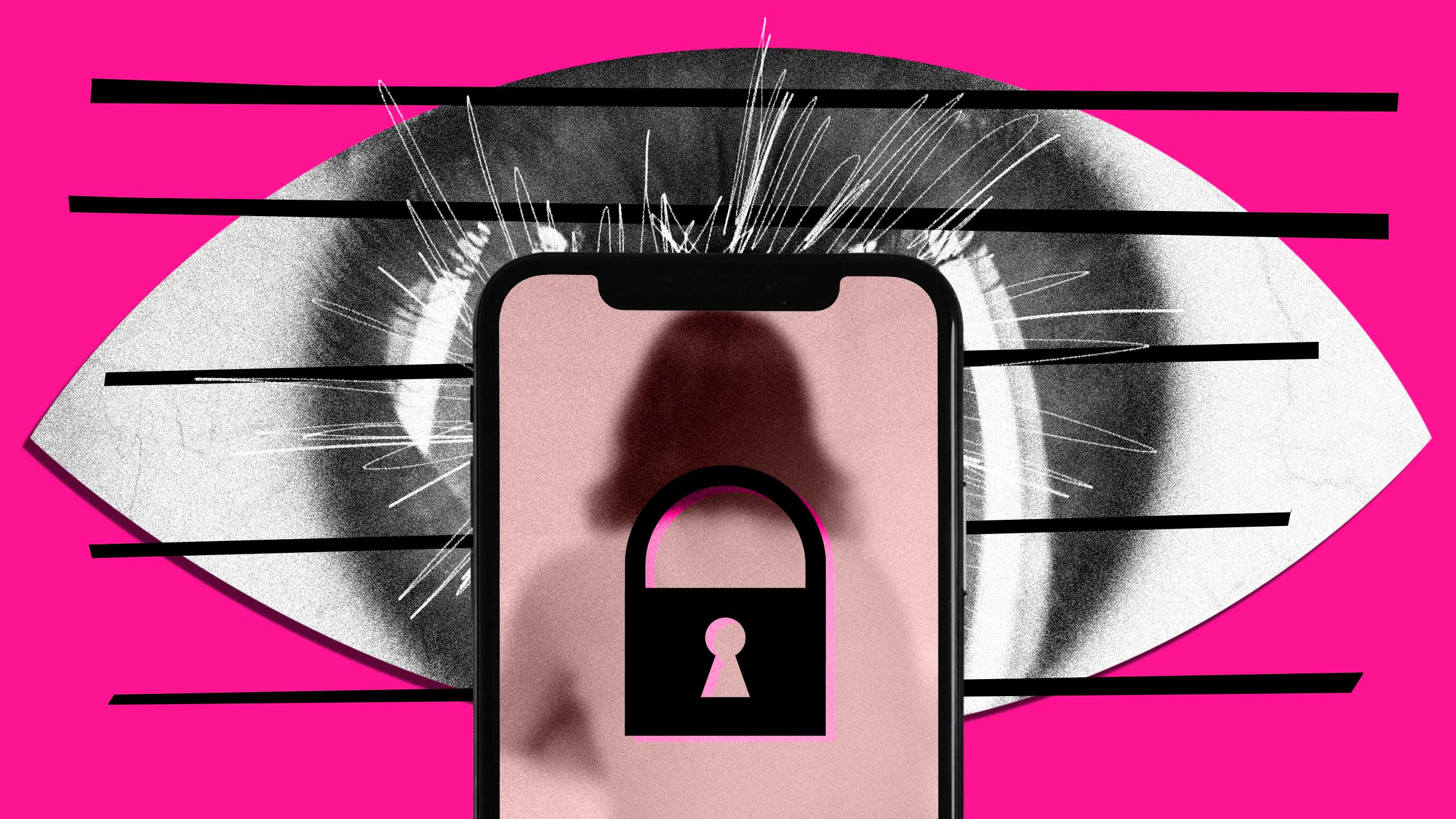The rules of the dating game have been revised. In the age of physical distancing, the fact that “first base” used to be kissing (with your MOUTH?) seems like a sordid relic of a bygone era. Over the summer, as government bodies issued formal pandemic sex statements advising us to try glory holes and sleep with our roommates, we collectively regressed into middle school kids giggling in health class. Thinking about the poor BA political science intern who was tasked with drafting New York City’s official statement on rimming makes me cringe down to my [redacted]. But the pandemic hasn’t put an end to hook-ups. In order to cover all our public health-related bases, COVID-19-concious sex practices need to be shepherded in, along with handwashing.
The safest sex you can have may be with yourself, but that doesn’t mean you have to go it alone. Yuan Stevens is a law and policy researcher focused on cybersecurity and privacy. She’s part of the board of directors for Open Privacy, a B.C.-based organization that researches, educates on and creates accessible privacy technologies. Like many of us, Stevens has been ruminating on what the lockdown means for relationships. “The use of dating apps has increased since the start of COVID-19,” she says, pointing out that sites like Hinge and Tinder reported a spike in downloads of up to 15 percent. “But we—the general population and especially parts of the queer community—have relied on technology for flirting, romance and sexual exploration for a long time now. The queer community has needed the safety and infrastructure of technology in order to protect ourselves from harassment, violence, abuse in public.”
“The safest sex you can have may be with yourself, but that doesn’t mean you have to go it alone.”
While technology can be an incredible resource for community and connection, it can also leave users vulnerable to devastating privacy breaches. “The security of apps used for sex, romance, dating, intimacy, etc. is more important than ever,” Stevens says. Ultimately, the incorporation of technology into sex is allowing another party into the relationship. Sharing personal information online is a gesture of trust and intimacy not only with your partner(s), but with the platform you’re using. Here are some tools and strategies to protect yourself and your information when you’re getting intimate online.
Sexting
When it comes to protecting a piece of data as it travels online, encryption is fundamental. Encryption is a process where a readable piece of data (say, “you look so hot in those briefs”) is scrambled into ciphertext, a set of illegible numbers and letters that can only be made readable again with an encryption key. Telegram, an app used by protestors to broadcast on the ground information and updates, uses a “client to server” (C2S) model in which your message stays scrambled until it reaches the company’s servers. While this works for preventing unwanted eyes while in transit, it gives the company itself access to whatever is being sent. C2S platforms have also been criticized for keeping user data on a central server, making it susceptible to both breaches and insider leaks. Given that a 2020 survey of 472 cybersecurity professionals reported that 90 percent of organizations “feel vulnerable to insider attacks,” it’s worth looking into other options.
If you’re hoping to truly secure your X(or G!)-rated information, end-to-end encryption (E2EE) is your best bet. With E2EE, only you and the people you’re communicating with have private encryption keys, so the data doesn’t exist in its unscrambled form outside of your personal devices. Not even the company has access to the information you share.
While 2020 has seen companies offering unprecedented security commitments, Signal and iMessage have both offered default end-to-end encryption for years. Signal also offers features like hiding your messages when you navigate away from the screen, and a desktop app for those who might not have phone access (though you do need a phone number to sign up). WhatsApp also has default end-to-end encryption, however their updated privacy policy forces users to share information like IP addresses (a code associated with your device and location) and phone numbers with Facebook, a company that has faced numerous data breaches and criticism about how it handles user’s privacy, and has implemented large scale censorship of sex workers on their platforms.
Sending nudes
As we attempt to #stayhome, many people are sending nudes to their love/lust interest(s) way before telling them their address. Without caution, though, a throwaway photo could give out more information than intended. Photos taken on digital cameras (smartphones included) contain exchangeable image file format (EXIF) data embedded in the file, information like the geolocation of where and when the picture was taken. If you’re taking a nude in your own home, EXIF data can be used to reveal the location of your house. While plenty of “metadata scrubbing” apps of dubious legitimacy exist, photo data can be scrubbed quickly and easily by grabbing a screenshot of the original picture and sharing that instead. At most, screenshots will reveal the timestamp of capture and nothing more, keeping the geodata on the original photo secure. When it comes to photos, Yuan says, “On a small scale, we can try to do harm reduction when we engage with people online. For example, when we send nudes, we can send them through encrypted text messaging apps, some of which allow messages to disappear.” While disappearing photo software (both encrypted and unencrypted) is becoming more popular, it’s important to note they aren’t completely risk-free. Apps like Snapchat and Instagram, designed to notify the user if the recipient takes a screenshot or records the conversation, are susceptible to recording software and workarounds (like turning off network connection) that make their “security” functions unreliable. As with any method of harm reduction, these are strategies for negating risk, not eliminating it.
Web browsing
Having your personal browsing history made public is a widespread fear, but for queer people the stakes can be higher than just embarrassment. For those sharing a computer with people they haven’t come out to yet, or living in a country where being gay is still criminalized, it’s important to be able to trust the methods you use for anonymity. Private browsing mode prevents your history from being visible on your own computer, but still displays your IP address to outside servers, allowing them to track your activity online and tie it back to you. If you truly want to stay anonymous, your IP address needs to be hidden from all parties, which can be accomplished by using a Virtual Private Network (VPN). VPNs reroute your device’s internet connection through one of their private host servers, hiding your IP address and encrypting your personal data. Both ExpressVPN and NordVPN offer reliable services for a monthly membership fee, with multiple host server locations available for browsing worldwide. For those on a tighter budget, ProtonVPN’s free version doesn’t cut corners when it comes to user security.
Video chat
Video chatting technology can be an incredible tool for intimacy; there’s even porn being made about it! If you’re looking to make your own, many communication apps now support secure video calls, implementing similar end-to-end encryption options as over text (encrypting the video and audio stream so that only the people you want to have access, have access). If it’s you and one other partner, Signal offers the same E2EE they apply to their messaging, but it only works one-on-one. Those looking to put on a show for a larger audience could use WhatsApp, which allows up to eight participants in their default encrypted video calls. For the true exhibitionists, though, Apple is surprisingly supportive, hypothetically allowing a whopping 32 participants to gather over E2EE Facetime (sorry Android users, you’re not invited).
What about Zoom, the company that skyrocketed past Skype to become the de-facto video chatting verb? Zoom has faced two years full of security scandals, from a flaw that gave hackers access to users’ webcams, to lawsuits over disclosure of personal information. While Zoom has in the past misled users on the platform’s security capabilities, they finally offer end-to-end encryption (as a technical preview) as of early October. While some features like cloud recording and breakout rooms aren’t compatible with the security update, limiting the company’s access to information is worth the sacrifice for those concerned with Zoom’s relationship to law enforcement.
“Security is a process, not a result.”
While these tips can help make your online hook-ups safer, they can’t guarantee privacy. “Security is a process, not a result,” says Stevens. For those seeking personalized security tips, Yuan recommends Security Planner, which was created by Citizen Lab in Toronto. The interactive tool “helps people assess their security needs and steps to take to protect themselves,” she says, though she stresses that “companies who release software, websites, hardware or whatever in the world should bear the burden of designing systems that prioritize information security.” The relationship between you, your partner(s) and the platforms in between is an ongoing negotiation of trust. Like any other boundary, intimate or otherwise, your security requirements are a personal decision only you can make.


 Why you can trust Xtra
Why you can trust Xtra


